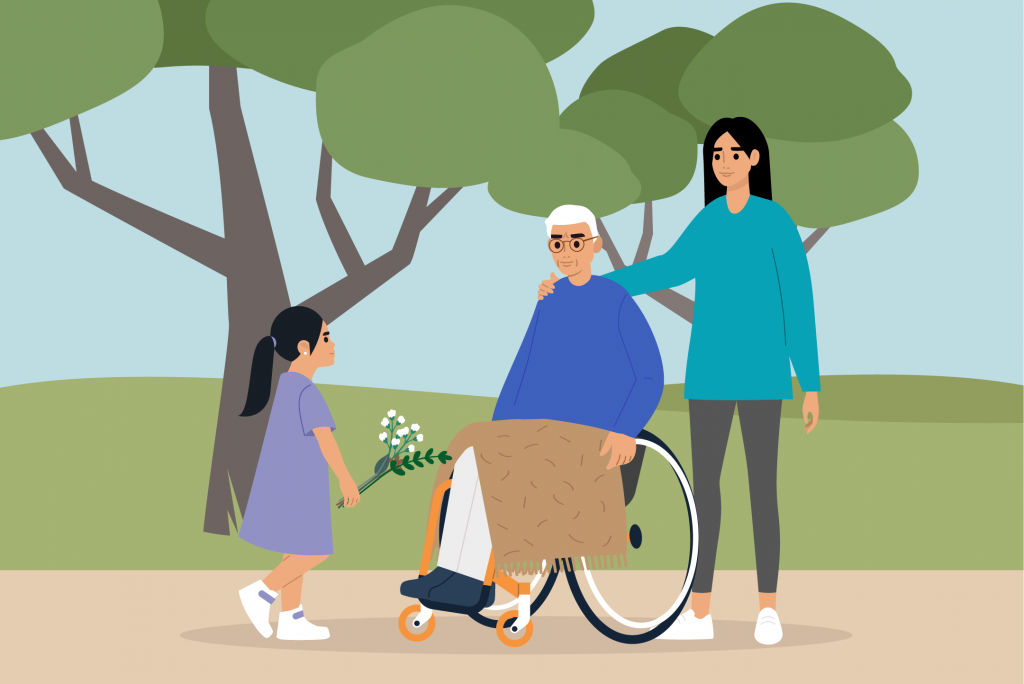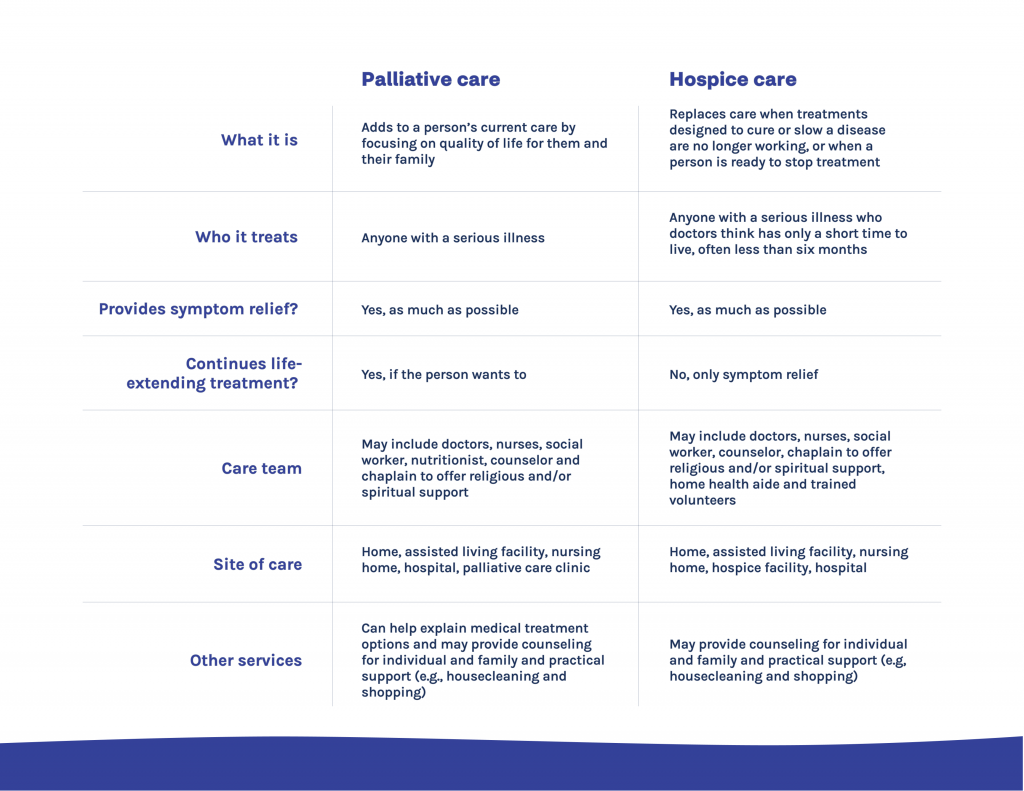GET SUPPORT
AUGUST 2024
When a loved one reaches end-of-life
The loss of a parent or loved one can be one of the most difficult events in a person’s life. The months leading up to their death, and the grief that follows, can be extremely painful, no matter what your relationship with your loved one has been. Your Costco benefits can help with support and guidance throughout this challenging time.
Looking for more? Find other articles below

Palliative or hospice care?
When your family member has a serious illness, they may talk with their doctor about what direction they want their treatment to take. They often can’t have these conversations as they get more ill and may need you to make healthcare decisions for them.
Resources for Living’s legal services can help you and your family member set up a healthcare proxy so that you can legally make decisions about their treatment on their behalf. Your family member may also want to talk to their doctor about a do-not-resuscitate order (DNR) if they don’t want CPR attempted if their heart stops beating or their breathing stops.
Treatment options to consider include palliative care or hospice care. These are explained below.

Palliative care can transfer to hospice care if the medical team believes treatment is no longer helping and the person is likely to die within six months. Alternately, hospice care can be stopped if the person wants to restart medical treatment or if they get better unexpectedly.
Grieving the loss of loved one
There is no one way to feel when a parent or loved one dies. In fact, most people rarely experience one emotion — one moment, you might be flooded with sadness, then the next moment, feel anger or anxiety. It’s also normal to feel relief that your loved one is no longer suffering or that the grueling caregiving is over. Every emotion is valid.
Understand that grief has no timeline. Resist the idea that there are certain stages you need to go through. Be patient, allow yourself to feel all your feelings and try the following strategies to find some peace.
5 strategies to cope with grief

Lean on others
Find one or two trusted friends or family members who you can call whenever you’re struggling. To feel less alone, join a support group for people who have lost a parent. Resources for Living’s care partners can guide you to resources in your area. You can also find peer support with Supportiv, a program that connects you via anonymous small group chats with people struggling with the same things you are.

Find time for exercise
Take a daily walk to keep your energy up and release feel-good endorphins. Studies show that physical activity can help people who are grieving feel less depressed and anxious.

Reconnect through stories and activities
Talk to family about what your family member meant to you and look at old photos to bring back happy memories. Engage in activities they loved, such as cooking their favorite meal, as another way to connect.

Do something in their memory
Honor your loved one by planting a tree, running a race in their name, or donating to or volunteering at their favorite charity. These actions can raise your spirits and give you a sense of comfort.

Try therapy
A therapist can help you process your grief. Therapy is also a safe space to work through any difficulties you had with your loved one, find forgiveness and achieve a level of closure. Get started with six yearly free counseling sessions via in-person, televideo or chat through Resources for Living. You can also try an eight-week online program to help process grief through AbleTo.
Grieving is normal, natural and different for everyone. Be kind to yourself and take the time you need to work through your loss. And remember, help is available. Turn to the resources below to get the support you need.
Sources:
National Institute on Aging. What are palliative care and hospice care?
WebMD. What is hospice care?
Forbes Health. Losing a parent: expert tips for coping with the grief.
Resources for you
- The Live Healthy Team can connect you to a social worker to provide support as you manage end-of-life care, as well as a behavioral health clinician to help you work through your loss. The Live Healthy Team is available at no cost through your medical plan and is completely confidential. To get started, connect to a Live Healthy Coach at 800-814-3543 (option 2), Monday through Friday, 7 a.m. – 7 p.m. CST.
- Resources for Living provides support for grief and loss through therapy, digital resources, legal and financial consulting, and immediate support. Access six free counseling sessions per issue yearly, for you, each of your household members and each dependent child up to age 26. Visit RFL.com/Costco or call 833-721-2320 (TTY: 711) to learn more.
- Resources for Living provides support for grief and loss through therapy, digital resources, legal and financial consulting, and immediate support. Access six free counseling sessions per issue yearly, for you, each of your household members and each dependent child up to age 26. Visit RFL.com/Costco or call 833-721-2320 (TTY: 711) to learn more.
- AbleTo offers support for caregivers and those who’ve recently lost a loved one. Their eight-week programs include therapy, coaching and digital resources to help you work through the stress of caregiving, process loss, and improve your mood and self-care. This program is available to all employees and their dependents age 13+ enrolled in a Costco medical plan. Visit AbleTo.com/Costco or call 833-881-1444 to learn more.
- Resources for Living provides support for grief and loss through therapy, digital resources, legal and financial consulting, and immediate support. Access six free counseling sessions per issue yearly, for you, each of your household members and each dependent child up to age 26. Visit RFL.com/Costco or call 833-721-2320 (TTY: 711) to learn more.

